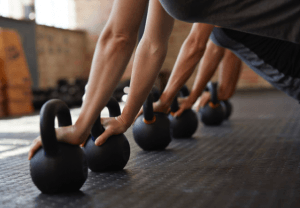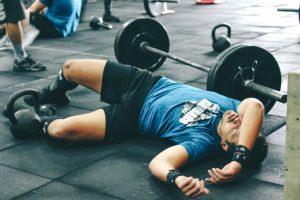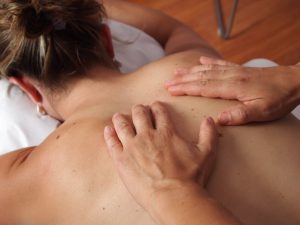Over Training
 There’s no question that exercise is the key to health and longevity. Does that mean that the more training and exercise you do, the better the effect? The more benefits achieved? Well, not exactly.
There’s no question that exercise is the key to health and longevity. Does that mean that the more training and exercise you do, the better the effect? The more benefits achieved? Well, not exactly.
There comes a tipping point where too much is simply too much. The result is a condition referred to as ‘Over Training Syndrome’ (or OTC) where the body starts to breakdown (or can’t keep up) and the effects can become detrimental.
Here are a few tips to help you recognize if you’ve reached that stage:
- Resting Heart Rate: Many of us tend to have knowledge of what our general resting heart rate is. If not, simple take your pulse for a minute, a number of times during the day when you’re at rest, and you’ll get a sense of where you’re at. With over training, this rate goes UP! The best time to take this is first thing in the morning when you wake up. This is when it should be at its lowest. A healthy individual may find their resting heart rate to generally be between 50 – 60 beats/minute but with overtraining, find that their morning pulse rate is 70!!
- Performance Blahs: A sure sign that your training too much is finding that the harder you work, the worse your performance gets. Balance and agility worsen, sprint speed and reaction time slow down and your strength wains. Not only that, you feel like your workouts exhaust you more than ever.

- Fatigue: It’s certainly expected that a work out may cause heaviness and soreness for a few days afterwards. However, in an over trained state, this heaviness continues; a sense that the training session workload is just overwhelming.
- Sleep Issues: Sleep is important; its crucial for all aspects of health and rejuvenation from training. Issues with insomnia and restlessness are classic signs that your training schedule is getting to you.
- Mood Swings: Mood swings tend to get us when we’re under stress. This is due to the release of cortisol and ephedrine among other hormones and neurotransmitters that tend to affect our overall feeling of well-being. Over training is no exception to the rule; your body is stressed!
- Loss of Appetite: Usually, training increases our desire to eat; to refuel the body. But, due to the negative chemical effects in the body from over training, our body’s stress mechanisms suppress our appetite while at the same time sometimes causing satiation – such as the midnight binge.
- Injuries: With less coordination, agility, strength, and hormonal imbalance, the body becomes much more prone to injury. This results not only in a higher rate of injury but an enhance feeling of nagging aches and pains.
- Illness: In the same way over training can increase the risk of injury, it can also manifest as an entire range of complications involving the cardiovascular, gastrointestinal, endocrine, nervous or even reproductive systems; as another classic sign of overtraining for women is disturbances in their menstrual cycle.
What Can You Do To Avoid Over Training?
To begin with, awareness is key. Sometimes when you just don’t feel up to that workout session, turn around and head home. Be kind to your body.
Second, nutrition is a key component to proper recovery. If you are not fuelling your body effectively to help it recover, it won’t. With over training, the body is often depleted of essential nutrients and a diet high in carbohydrates, lean proteins and healthy fats such as omega 3 oils is necessary to recovery.
 Third, self-therapy such as getting a massage, stretching, foam rolling, hot and cold showers, steam baths, etc. are all helpful. So many self-therapies help reduce stress hormones, improve tissue texture, and improved body mechanics.
Third, self-therapy such as getting a massage, stretching, foam rolling, hot and cold showers, steam baths, etc. are all helpful. So many self-therapies help reduce stress hormones, improve tissue texture, and improved body mechanics.
Forth, reduce volume. Sometimes all it takes is a degree of moderation to allow the body to ‘catch up’ in its recovery. Remember, you don’t make gains during a work out!!! The gains are made when the body recovers and adapts during the rest period in between.
If you sense that you may be reaching an over trained state, a few days away from the gym just may be the right medicine. When you return, you’ll have more focus, better performance, and enjoy yourself a whole lot more.
In addition to massage therapy, seeking out a great chiropractor (aka: body mechanic) can also support you in your active pursuits. As can therapies such as IV Drip and more!
It is certainly right to also consult with your health professional to ensure this is the cause of your physical concerns and for advice on proper timing for return to full activity.
